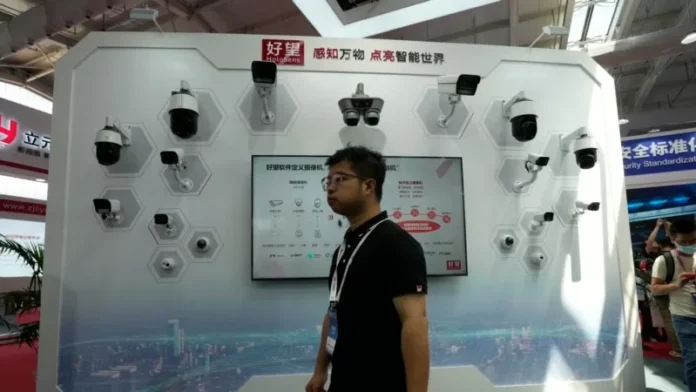The Treasury Department has taken a significant step towards safeguarding the United States’ technological superiority by finalizing a new rule on Monday. This rule, which implements an executive order signed by President Joe Biden, aims to prevent U.S.-based individuals and companies from investing in the development of advanced technologies in China. By doing so, it will prevent Beijing from accessing cutting-edge expertise and equipment, thereby protecting our national security interests.
The rule focuses on three key areas: advanced semiconductors and microelectronics, technology used in quantum computing, and artificial intelligence systems. These fields are crucial for the development of next-generation military, surveillance, and intelligence applications, as well as cutting-edge code-breaking computer systems and fighter jets. Therefore, it is essential to prevent these technologies from falling into the wrong hands.
The rule, which will go into effect on January 2, 2023, prohibits certain transactions in semiconductors, microelectronics, and artificial intelligence. It also establishes mandatory reporting requirements for transactions that are not outright banned. This will ensure that the government is aware of any potential risks and can take appropriate action to protect our national security.
In the field of quantum computing, the rule is even more far-reaching, banning all transactions related to the development of quantum computers or the production of critical components required to produce them. This includes the development of other quantum systems as well. Unlike the fields of AI and semiconductors, the rule does not allow for transactions that can be completed as long as they are reported to the government. This shows the seriousness with which the U.S. government is approaching the issue of protecting our advanced technologies.
To administer this rule, the Treasury Department has announced the creation of the Office of Global Transactions within its Office of Investment Security. This office will oversee the Outbound Investment Security Program, which will ensure that U.S. investment is not exploited to advance the development of key technologies by those who may use them to threaten our national security.
The justification for this rule is clear. As Assistant Secretary for Investment Security Paul Rosen stated, “Artificial intelligence, semiconductors, and quantum technologies are fundamental to the development of the next generation of military, surveillance, intelligence, and certain cybersecurity applications.” Therefore, it is crucial to take targeted and concrete measures to prevent our investment from being used against us.
However, this rule has faced opposition from Beijing, which has repeatedly complained about U.S. technology policy. They argue that the U.S. is dedicated to preventing China’s rise as a global power. But the truth is, this rule is not aimed at any specific country. It applies to transactions with “countries of concern,” but the focus is on companies and individuals doing business in mainland China, as well as the “special administrative districts” of Hong Kong and Macao. This further emphasizes the fact that the rule is not targeted at any particular country but is a necessary step to protect our national security interests.
The rule also covers intangible benefits that may come with U.S. investments in these fields. These include enhanced standing and prominence, managerial assistance, investment and talent networks, market access, and enhanced access to additional financing. These intangible benefits can also be exploited by countries of concern, and therefore, it is crucial to prevent them from falling into the wrong hands.
The onus will be on U.S. companies to comply with this rule. As Stephen Ezell, vice president for global innovation policy at the Information Technology & Innovation Foundation, stated, “This is the U.S. government signaling to U.S. entities and investors that they need to think twice about making investments on the prohibited transaction side of the equation that would advance China’s capabilities in these areas.” This shows that the U.S. government is taking a proactive approach to protect our national security and prevent the exploitation of our advanced technologies.
Moreover, the impact of this rule on investment in Chinese technology companies will have far-reaching effects beyond just reducing funding. As Ezell explained, the loss of intangible benefits such as managerial capability and talent networks will also have a significant impact. This further emphasizes the need for this rule to prevent the leakage of our advanced technologies to countries of concern.
In addition, the rule aims to close loopholes that may allow U.S. investment firms to support Chinese firms in the development of certain kinds of technology. As Daniel Gonzales, a senior scientist at the RAND Corporation, explained, “One particular case was that of TikTok and its AI algorithms,

